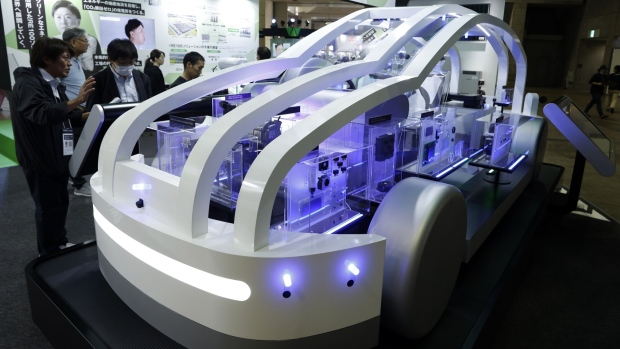Oct 30, 2023
Panasonic EV Batteries Tumble to Loss on Tempered Tesla Demand
, Bloomberg News

(Bloomberg) -- Panasonic Holdings Corp.’s automotive batteries operations fell to their first loss in three quarters on lackluster demand for Tesla Inc.’s Model S and Model X cars.
Demand shifted to Tesla models priced below the $80,000 threshold eligible for tax incentives, hurting the Japanese supplier’s profitability in the September quarter, Chief Financial Officer Hirokazu Umeda said on an earnings call Monday.
Panasonic cut domestic output of automotive batteries by 60%, Umeda said. That’s helped stabilize battery inventory levels, but those factories won’t run at full capacity “any time soon,” he said.
Tesla is dialing back expansion expectations, after months of price-slashing that’s eaten into the automaker’s margins.
EV battery demand is expected to pick up in North America, but Panasonic still cut its full-year operating income outlook to ¥400 billion ($2.7 billion), below analyst expectations of ¥414 billion. A slowdown in China is weighing on sales and profit in its industrial segment, which includes servomotors, sensors and controllers, the Osaka-based company said.
But Panasonic, which also makes hair dryers and air conditioners, plans to stick to its plans to mass produce its new 4680 batteries, Umeda said. The company is in talks to supply batteries to Mazda Motor Corp. and Subaru Corp. It targets quadrupling battery production capacity to 200 gigawatt-hours by March 2031.
“We can expect a recovery, but we will not assume the kind of growth we see in the US at home,” he said. In addition to the jointly operated gigafactory in Nevada, Panasonic is building a new plant in Kansas.
©2023 Bloomberg L.P.





